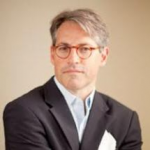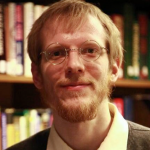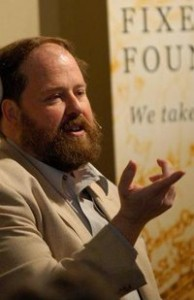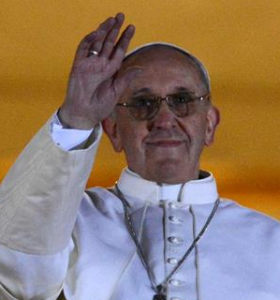
Deprecated: trim(): Passing null to parameter #1 ($string) of type string is deprecated in /home/aoiusa/public_html/wp-content/plugins/sexybookmarks/public.php on line 388
Deprecated: trim(): Passing null to parameter #1 ($string) of type string is deprecated in /home/aoiusa/public_html/wp-content/plugins/sexybookmarks/public.php on line 394
Deprecated: trim(): Passing null to parameter #1 ($string) of type string is deprecated in /home/aoiusa/public_html/wp-content/plugins/sexybookmarks/public.php on line 400
Once the State arrogates unto itself the moral authority to create relationships not found in nature, it stakes the claim that only the State can determine what is morally licit. At that point Christian beliefs and morals oppose the State and the Christian may be seen as an enemy.
Source: ericmetaxas.com
Highlights:
Jefferson and the Founders…knew that the State was always tempted to take over everything — including the religious side of people’s lives. So they put a protection in the Constitution that the government could not favor any religion over another. . .and could not prohibit the free exercise of religion.
In my book Bonhoeffer I talk about a meeting between Bonhoeffer’s friend, the Rev. Martin Niemoller, who early on in the Third Reich was one of those fooled by Hitler. And in that meeting he says something to Hitler about how he, Niemoller, cares about Germany and Third Reich — and Hitler cuts him off and says “I built the Third Reich. You just worry about your sermons!”
There in a few words you have the idea of Freedom of Worship. Freedom of Worship says you can have your little strange rituals and say whatever you like in your little religious buildings for an hour or two on Sundays, but once you leave that building you will bow to the secular orthodoxy of the state!
[S]erious threats to Religious Freedom on the horizon and in 2009 he led the way in drafting the Manhattan Declaration. And please visit ManhattanDeclaration.org and sign that. Because already those distant threats are coming to pass.
First of all there is the HHS Mandate. Many people have dismissed this as something to do with contraceptives. But it has nothing to do with contraceptives and everything to do with Religious Freedom.
The second issue of Religious Freedom is the attempt to legally redefine marriage. This has been framed as an issue of expanding a supposed right to marry whomever one chooses, which it is not. It’s about Religious Freedom. . .

TEXT:
Good morning. I’m here today because a year ago I was the speaker at the National Prayer Breakfast. If you haven’t seen that speech, you can watch it at my website www.ericmetaxas.com. And if you go to www.ericmetaxas.com by noon and follow me on Twitter, you get a free Wacko Birds t-shirt!
But seriously, if you watch my speech you’ll see that at the end I led the audience in singing “Amazing Grace.” I won’t do that now, but I would like to lead you in LIP-syncing the National Anthem. OK, I probably need to get serious for a moment or two.
Some of you know I wrote a biography of Dietrich Bonhoeffer and it’s because of Bonhoeffer that I find myself thinking about the issue of Religious Freedom. Many people have said they see disturbing parallels between what was happening in Germany in the Thirties and America today on that issue. I’m very sorry to agree.
Let me begin with my hometown, Danbury, CT. Some of you know that Thomas Jefferson wrote a letter to the Danbury Baptists in 1801, in which he uses the phrase “separation of church and state” — and in case there is anyone who doesn’t know it, the sense in which Jefferson uses that phrase is actually the opposite of how it’s generally thought of today. Today we often hear that it means that the state needs to be protected from religion, and that religion should have no place in government or society.
Jefferson and the Founders thought the opposite. They knew that the State was always tempted to take over everything — including the religious side of people’s lives. So they put a protection in the Constitution that the government could not favor any religion over another… and could not prohibit the free exercise of religion.
They wanted churches and religions to be protected from the government — from Leviathan. Why? Because they knew that what people believed and their freedom to live out and practice one’s most deeply held beliefs was at the very heart of this radical and fragile experiment they had just launched into the world.
Okay, so where are the threats to Religious Freedom in America today? Well, for one thing, understand we are not talking about Freedom of Worship. In a speech 18 months ago, Hillary Clinton replaced the phrase Freedom of Religion with Freedom of Worship — and my hero and friend Chuck Colson noticed and was disturbed by it. Why? Because these are radically different things. They have Freedom of Worship in China. But what exactly is Freedom of Worship?
In my book Bonhoeffer I talk about a meeting between Bonhoeffer’s friend, the Rev. Martin Niemoller, who early on in the Third Reich was one of those fooled by Hitler. And in that meeting he says something to Hitler about how he, Niemoller, cares about Germany and Third Reich — and Hitler cuts him off and says “I built the Third Reich. You just worry about your sermons!”
There in a few words you have the idea of Freedom of Worship. Freedom of Worship says you can have your little strange rituals and say whatever you like in your little religious buildings for an hour or two on Sundays, but once you leave that building you will bow to the secular orthodoxy of the state! We will tell you what to think on the big and important questions. Questions like when life begins and who gets to decide when to end it and what marriage is… And if you don’t like it, tough luck! That’s Freedom of Worship and that have that in China and they had it in Germany in Bonhoeffer’s day…
But the Founding Fathers said just the opposite! They said the faith inside that church building must live on and flourish outside that building. In fact, the Founders believed the success of the American Experiment depends on it! In Os Guinness’s book — A FREE PEOPLE’S SUICIDE – he reminds us that the Founders believed Freedom of Religion was at the heart of the American Experiment.
In that book he talks about the Golden Triangle of Freedom — I’ll bet you never heard about that in school or in college. He explains that the Founders knew that Freedom and Self-Government were not possible without Virtue. Without virtue, we would simply vote to line our own pockets and elect those leaders who would line our pockets. Sound familiar? But they believed that Freedom required Virtue and Virtue in turn required Faith. It was mainly Faith that motivated citizens toward Virtue. So Freedom required Virtue and Virtue required Faith — but Faith in turn required Freedom. Faith requires Freedom. The whole triangle falls apart if you take away any of those three things. They support each other. Please read A FREE PEOPLE’S SUICIDE.
Chuck Colson saw some serious threats to Religious Freedom on the horizon and in 2009 he led the way in drafting the Manhattan Declaration. And please visit ManhattanDeclaration.org and sign that. Because already those distant threats are coming to pass.
First of all there is the HHS Mandate. Many people have dismissed this as something to do with contraceptives. But it has nothing to do with contraceptives and everything to do with Religious Freedom.
It’s the issue of the government saying to a religious group that whatever you think about these issues means nothing! We are the state and we will force you to pay for contraceptives and abortifacients. We will force you to violate your conscience and your religion — why? Because we can. We have the power and you Catholics are just a backward religious minority.
You may know that Josef Stalin in a battle with the Catholic Church once asked: “How many divisions does the Pope have?” It’s an ugly moment in American history when the current Presidential administration is taking a page out of the book of Josef Stalin .
When the government bullies a minority, instead of protecting that minority, that is the beginning of the end of America. We protect minorities here. So I, as a non-Catholic who doesn’t share that entire view on contraception, am nonetheless obliged as an American to defend those who have those views! That’s what makes us America. We protect minorities and we protect religious freedom. For all. Once we stop doing that we are no longer America.
The second issue of Religious Freedom is the attempt to legally redefine marriage. This has been framed as an issue of expanding a supposed right to marry whomever one chooses, which it is not. It’s about Religious Freedom. So here’s my question to all the legal scholars across America…
What about the Religious Freedom of those who dissent on that issue? Will they be forced to stifle their religious feelings on this issue because the state has demanded it? This is not a live and let live issue. If it were, that would be another story. No, if marriage is LEGALLY redefined, it will utterly cripple Religious Freedom in America and it’s already beginning to do that — and NO ONE is even talking about it. Not one of the cable networks ever discusses this.
And so what we are seeing on both these issues is the unconstitutional Establishment of a religion, aided and abetted by the state. But it’s a secular religion and a secular orthodoxy. Indeed, it’s a secular fundamentalism — and it says on the subject of marriage there is to be no discussion. The science is settled. It’s the future. And some in the GOP are jumping on the bandwagon. But ladies and gentlemen, whenever someone tells you the science is settled and the debate is over, that’s a sure sign that the debate is NOT OVER, but that they are deathly afraid that the debate might begin.
So they want to tell you it’s settled and let’s hurry up and get on the right side of history. But God determines who is on the right side of history, not the mainstream media and not the government.
Most of you see the growing state, gobbling up more and more of the free market, and freedom itself. And if Religious Freedom is threatened, it is just the same. These are the twin engines that have made this the greatest country in the history of the world.
Finally, let me say that when the government kills Freedom of Religion and faith is pushed out of the public square, it’s not just bad things that happen. It’s that many good things don’t happen.
In my book Amazing Grace I tell the story of William Wilberforce. It’s the story of what happens when a man drags religion into the public square and when he allows it to affect how government behaves. As a result, the governmment was forced to abolish the slave trade. Don’t you think the African slaves were glad Wilberforce allowed his religion to affect his politics?
In those days the settled science was that slavery and the slave trade were just the way it was and to even discuss abolishing them was insane. But devout Christians who believed every human being is made in the image of God forced the discussion.
The story of Bonhoeffer shows that it was many serious Christians who led the conspiracy against Hitler. The settled science was that the Third Reich was the future and any dissenting voices were simply silenced. But the voices of faith were not easily silenced.
Indeed, even Bonhoeffer, though murdered by the Nazis, speaks today. He is speaking to us — to America — and warning us not to let ourselves be silenced. He called the church to be the church and he is doing so now, to the American church. Stand up for what is right, knowing that the whole country will be blessed.
But what about America? When has faith entered the public square in this country? Did you know that it was serious Christians who started the abolitionist movement in this country? Yes! Just watch Steven Spielberg’s movie Amistad.
Did you know that devout Christians led the Civil Rights movement in this country? Some would have you think it was secular liberals who led it, but it was a church-based faith-based movement from beginning to end. Did you know that Rosa Parks was a devout Christian? That she was chosen to kickoff the bus boycott because of her faith?
Did you know that Jackie Robinson was a serious Christian? And that Branch Rickey who picked him to be the one to break the color barrier in baseball did so because of Robinson’s faith, and that Rickey was himself a bible-thumping Christian who did what he did in part because he believe God wanted him to do it? There’s a movie coming out about Jackie Robinson this month and I’ll bet they don’t even mention that. I do mention it in my next book Seven Men: And the Secret of Their Greatness, because everyone should know that it was Jackie Robinson’s faith that was behind what he did.
If you push the voices of faith out of the mainstream and replace them with a secular orthodoxy, you take away the most important check the Founders put in place against unbridled statism.
My friends… here’s the story. We’ve had so much religious Freedom in this country that we are hardly aware of what it is and we hardly recognize when it is being threatened. So let me be one voice warning my fellow Americans that unless we take this seriously, it will soon be too late and we WON’T be able to do anything about it. Please take this seriously. Please read Os Guinness’ book A FREE PEOPLE SUICIDE and please visit ManhattanDeclaration.org and fight for your country. This — my fellow Americans — is about America.
God bless you and God bless America!



